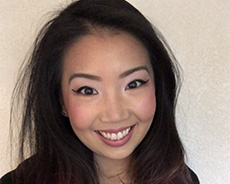Natalie Pon, MD
Child & Adolescent Psychiatrist

Dr. Pon is committed to working with children and their families using a developmentally informed approach to psychiatric assessment and care. She believes in understanding a child and family’s story that has led them to seek psychiatric care and co-creating a narrative and treatment plan that addresses the child as a whole person; this may include psychotherapy, behavioral or social interventions, family/parent support and medication management, amongst other treatments.
Dr. Pon specializes in the assessment and care of young children (0-6yo) and treats the range of early childhood mental health issues, including but not limited to anxiety/depression, disruptive behavior, adjustment and attachment issues, trauma (including medical), parent-child relational issues. She is very experienced with child-centered, dyadic, trauma-focused and cognitive-behavioral play therapy. She has received training in PCIT (parent-child interaction therapy) and is currently completing her certification. She has advanced training in psychodynamic work with young children and completed the infancy/early childhood year at the Child and Adolescent Psychoanalytic Psychotherapy Training Program (CAPPTP) at San Francisco Center for Psychoanalysis (SF-CP).
Dr. Pon is part of the RISE-IOP team at CHC and provides medication management for adolescents in the treatment program. In addition to her clinical work at CHC, Dr. Pon is adjunct clinical faculty at Stanford Child and Adolescent Psychiatry, where she supervises child psychiatry fellows in young child work, evaluations and play therapy. She also co-teaches the play therapy course for child psychiatry trainees and has taught and demonstrated play therapy with live cases in various modalities/settings.
Dr. Pon completed her child and adolescent psychiatry fellowship at Stanford University, where she served as Chief Fellow. She completed her general psychiatry residency at Baylor College of Medicine, where she trained at The Menninger Clinic in the Adolescent Treatment Program.
Education
- Stanford University Child & Adolescent Psychiatry Fellowship 2016-2018
- Baylor College of Medicine General Psychiatry Residency 2013-2016
- UT Southwestern Medical School 2013
- BS Cum Laude, Cornell University 2009
Licenses
- Board Certified in Child & Adolescent Psychiatry, 2018
- Board Certified in General Psychiatry, 2016
- Texas Medical Board
- Medical Board of California
Professional Affiliations
- Child and Adolescent Psychoanalytic Psychotherapy Training Program (CAPPTP), SF-CP, 2019-2020
- Chief Fellow 2017-2018, Stanford Child & Adolescent Psychiatry
- Palo Alto Psychoanalytic Psychotherapy Training Program (PAPPTP) Fellowship 2017-2018
- Harris Health Resident of the Year 2016, Baylor College of Medicine
- Clinician-Educator Track 2014-2016, Baylor College of Medicine
Recent Presentations
- Using Play Skillfully Across Settings of Care, Northern California Regional Organization for Child and Adolescent Psychiatry (NC-ROCAP), 2019
- Unconscious Gender Bias in the workplace, AACAP, 2018
- Stanford Klingenstein Fellowship Program (PSYC 225) Klingenstein Fellowship, Stanford School of Medicine, ongoing case presenter 2017-2018
- Teaching of Psychotherapy Interventions in the Psychiatric Emergency Center During Residency Training, American Psychiatric Association Annual Meeting, 2015
Publications
- Special Considerations in Child and Adolescent Psychiatry Supervision, Supervision in Psychiatric Practice: Practical Approaches Across Venues and Providers, APA, May 2019.
- Care of Pregnant Woman with Severe Mental Illness, Directions in Psychiatry 2018
- Voltage-gated Potassium Channel Antibody Autoimmune Encephalopathy Presenting With Isolated Psychosis in an Adolescent. PUBMED ID 29303952
- Content-Area Framework for Conducting Family Meetings for Acutely Ill Psychiatric Patients. PUBMED ID 27648507
- Special Considerations in Pediatric Psychiatric Populations. PUBMED ID 26493525


